賢治記念館入り口付近 4月16日
シーズンオフであまり人がみあたらなっかた。連休には賑わうだろう
黒田杏子(昭和13年生まれ)の俳句 藍生主宰
S56年発行「木の椅子」(現代俳句女流賞。俳人協会新人賞)
より「昭和49年以前の章」から5句抜粋。
十二支みな闇に逃げこむ走馬灯
ホメロスの兵士佇む月の稲架
雪女郎恋文氷柱のペンで書く
芭蕉照らす月ゲルニカの女の顔
墨買ふやひそやかに来し一葉忌

クラブ総会は議案が少なく短時間で終る見込みである。
懇親会を楽しく過ごしたい。女性部と相談し歌を唄うこととした。
選曲して何曲かプリントしてくるように言われたので、皆の
知っているような歌を準備プリントした。
内容は「北国の春」「海」「ここに幸あり」「おぼろ月夜」「青い山脈」
「ふるさと」「月の砂漠」「星影のワルツ」 以上。











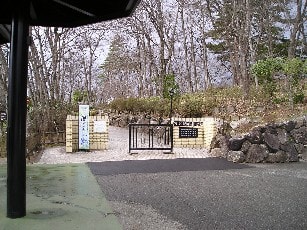
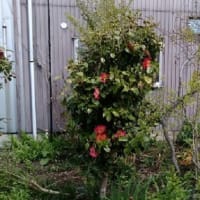
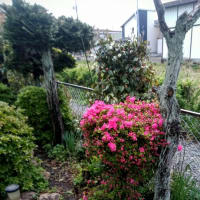
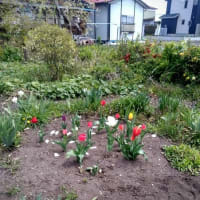
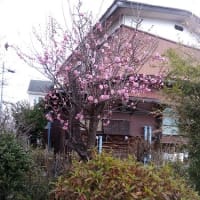

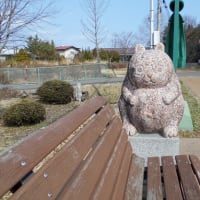
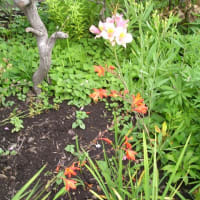
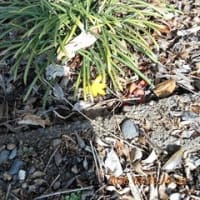
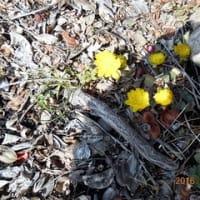

これは、どのような気持ち(情景)をうたったのでしょうか?
外人さんから訊かれたましたが、わたくしはうまく説明できそうも御座いませんので、
どうかお知恵を授けてください。
宜しくお願い申し上げます。
s-mori@hh.iij4u.or.jp
御縁を賜り、深謝申し上げます。
森 茂康
Dear Abigail Friedman san
I am Shigeyasu Mori.
Thank you very much for asking me about Haiku
“ ホメロスの兵士佇む月の稲架 “
I would like to inform you of my thought/impression as follows;
Scene of this Haiku is the night.
ホメロス Homerosu/Homer:
In the case of this haiku, I think that Homer is not the name of the famous poet,
but the meaning of the word Homer, that is important.
In other words the word "Homer" means "a hostage" or "a person required to follow somebody (Nation/Japan)".
兵士 soldiers
Not a volunteer, but it may be soldiers collected by the nation.
A color of the military uniform of the old Japanese army was modelled the color of the soil of Manchurian.
The just color resembles a color of rice drawn off.
佇む Stand still, "Nestling"
express a state to be still in the place.
月 Moon
"Feeling sad" peculiar to brightness, Japan where a thing is seen subtly.
稲架 Ine-Ka or Ina-Ga --- rice racks
稲杭 Ine-Kui or Ina-Gui --- rice piles
More than 稲架 rather like 稲杭
I think rice piles are right/suitable. Look at my FB photo. Reason looks exactly like soldiers and rice piles.
Racks, means that rice was suspended. Cover photo of the FB.
Japanese does not have singular and plural distinction.
In this case it is a plural number.
So many rice stakes/piles which formed a line regularly like soldiers.
When Kuroda san was child, she must have seen Japanese soldiers stood in line.
Among a relative of Kuroda san, acquaintances, some of soldiers might be killed in action.
There were not many people who I expected, and became a soldier.
A rice stakes/piles picked up for moonlight recalls her to soldiers,
I think that Kuroda san would fallen soldier and also feel so sad herself.
Best Regards and Thanks,!
Mori
*******************************************
Yes, your explanation makes good sense to me. Thank you. It isn't simply that the "soldiers" are lingering, but there is almost a sense of lingering regretfully. There is a sense of sadness/regret in this haiku and the image. It isn't 寂しい but rather, かわそうという感じですね.
*******************************************
「ホメーロス」という語は「人質」、もしくは「付き従うことを義務付けられた者」を意味します。 「佇む」は、じっとその場所にいる様です。 「月」は、かすかにモノが見える明るさ、日本特有の「もの悲しさ」です。 「稲架」は、兵士です。
厳しい軍紀に縛られる兵士が整列し、じっとその場所で微動だにせず、月明かりに照らされている。 わたくしは、「兵士は、かわそう」と感じます。 決して、勇ましいとは、思いません。 Mori
*******************************************
Dear Mori-sama, I am taking the liberty of emailing you in English, but please feel free to respond in Japanese. I wanted to ask you further about your comment following my noting Momoko Kuroda's haiku
ホメロスの兵士佇む月の稲架
(which I have translated as: Homer’s warriors/lingering under the moon/-- rice drying on a frame)
You mention that you recall as a child your grandmother saying that the drying rice looked like soldiers.
I am currently working on a manuscript of translations of Momoko Kuroda's haiku. The above haiku is one I like very much, but I thought it might be too difficult for English language audiences to appreciate. Your comment is very helpful, though, as it suggests that others in Japan have associated these rice drying stalks with soldiers. It suggests that what is new in Momoko's haiku isn't the whole concept of associating the scene with soldiers, but rather of associating the scene with a western tale, that is, Homer's Odyssey. Does this explanation of mine make sense to you?
If you prefer that I write this in Japanese, please let me know. It will just take me a bit more time. Also, if it is easier, you may respond to me via my email address: XXfriedman@XXXmail.com.
I apologize in advance for burdening you with my question.
Respectfully, Abigail Friedman (author, "The Haiku Apprentice"; Senior Advisor, The Asia Foundation, and U.S. diplomat)